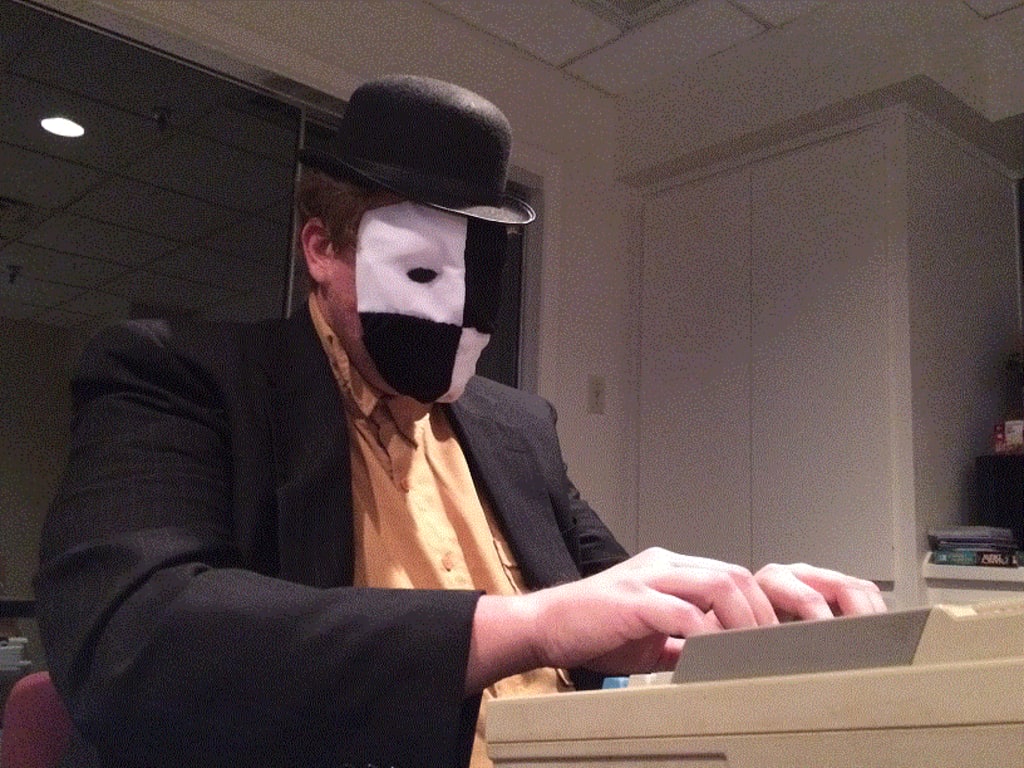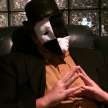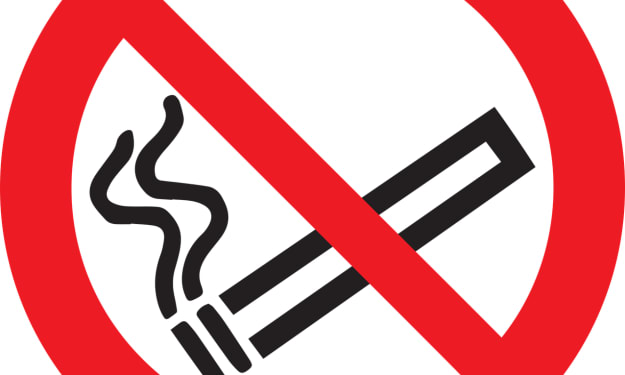
It is a wonderful, terrible thing to know exactly what you want to be. It is a privilege and a frustration to know exactly where you where you want to end up in life.
I'm not saying that there was never a point in my life when I didn't consider anything else: I think that everyone goes through the "policeman/fireman" phase at some point in their life. And, let's be honest, when you find out that somewhere out there somebody actually gets money for testing awesome things like video games, food, and toys before they get to market, we all spend at least a few days lusting after that particular career path.
But I always came back to writing.
I still remember the first time I wrote a story: it was, to put it in the kindest of terms, the worst fan fiction ever written. In my defense, I was... maybe six at the time? Eight? Anyhow, I wrote a story for my favorite character of my favorite Saturday morning cartoon.
The story, thankfully, has been lost to the sands of time. Or possibly buried in a pile of notebooks in my mother's attic somewhere. Either way, it's gone and the world is better for it.
But while the creation was awful, the creating was magical. It was the beginning of my lifelong love of writing.
Unfortunately for me, growing up in the middle of Texas didn't give me access to a lot of useful resources for learning the skills of writing. So I learned to write the old fashioned way. By doing absolutely everything wrong, over and over and over again.
For what it's worth, I do not recommend this style of learning. If at all possible, learning from other people's mistakes is the least painful way of picking up a new skill, and if you have to learn from your own mistakes, try to learn by taking your screw-ups to someone who can show you exactly where you went wrong.
That being said, doing everything wrong, over and over and over again, will teach you what you want to know eventually, and by the time I reached high school I had gone from being an abysmal writer, to merely being pretty awful. Mistaking pretty awful for "amazing," I decided that it was time to get published. Thankfully, by this point my family had the internet, and I was able to go online and hunt down information on publishing.
I knew, of course, that publishers would want to review the submissions and decide which ones were good enough for them, but much to my surprise I discovered that they didn't even want to read your manuscript before they started judging you. Instead, everywhere I looked, I found requests for "query letters." Something I had never heard of. Query, of course, was a question, and the question that I was supposed to be asking is whether or not they wanted to read my manuscript. But that made no sense. They were publishers; reading manuscripts was their jobs, and how the hell were they supposed to figure out if they wanted to read a manuscript without actually flipping through a few pages of it?
The experience of trying to get published quickly devolved from there.
Now, I could go into the absurdity of the publishing industry, and chances are good that I will, sometime down the road, but with regards to this particular story, the relevant factor is that the awful, awful manuscript that I had prepared did not get published (thankfully), instead I got my first lesson in the second trial of the artist's journey.
The best advice I've ever heard for people who want to be artists (paraphrased, as it was originally intended for writers, specifically) goes something like this: "If you can be happy working at a regular job and doing your art in your spare time, do that." I know, not exactly worthy of a spot next Confucius's best tidbits, but good advice none-the-less.
To put it in more memorably terms, "Making art is easy. Making good art is hard. Making art people will pay for is miraculous."
But for some of us, it isn't optional. I said at the start that knowing what you wanted to do was a wonderful, terrible thing. It gives you drive and direction, something that many people lack. But it also makes you restless and miserable. I've had a number of different jobs in my life, some were miserable, some were fun, sometimes I worked with assholes, sometimes I worked with wonderful people, but I was never happy at any of them. Or rather, I wasn't happy at any of them for more than a few minutes at a time. No job that I've ever had felt like it was leading anywhere, and no job I've ever had left me feeling like I'd accomplished anything meaningful. Some of that had to do with the job itself, but mostly, at its core, I was dissatisfied because I wasn't where I wanted to be. I wasn't where I NEEDED to be.
I was, unfortunately, where I HAD to be.
If you're going to try to make it as an artist, you'll find that it isn't like most career paths. Let me pause for a moment to clarify: I'm not saying that it is intrinsically harder than any other career path. But it is DIFFERENT.
With most careers, there is a certain amount of knowledge and training required to begin. Once you gain that basic level of knowledge and training, you can get a paying job. You spend more time, gain more knowledge and skill, and move along a career path towards whatever your particular goal is.
There is very little training required to begin as an artist. Virtually anyone with a basic education can write a story, or paint a picture, or dance. And nobody is going to pay you (except in very specific and unusual circumstances) for what you do when you're just starting out. Anybody can do it. Anybody can write. Anybody can dance. Anybody can paint a picture.
But not many people can do it well.
That's the first trial of the artist's journey. You have to be good. You have to be better than good; you have to be amazing.
In a perfect world, that would be the end of it. You could be amazing, people would notice, you'd get paid, and that would be the end of it. Except... everyone thinks they're amazing.
The second trial in the artist's journey is one that shouldn't be there. My theory is, it's a structural problem. But that's a conversation for another time. The important thing, at the moment, is that the problem exists.
You remember how I said that back in high school I thought that I was a great writer and I wanted to get published? You remember how I said that everybody can write? Well, that's the problem.
Everyone can make art. Anyone can make art. And most people want to share their art. That isn't intrinsically bad, but it does make certain things complicated.
My first book was a piece of crap, and I sent query letters, outlines, the first chapter of the book, the entire manuscript, whatever they accepted to anybody who would look at it.
It didn't really occur to me, at the time, to wonder how many other people were doing the exact same thing. Now, though, I know: agents and publishers are buried in requests for representation. They have so much coming in that, in many cases they literally cannot read all of it. So instead of giving each book the examination it deserves, they create barriers for entry. Some of them are hoops made for us to jump through. Some of them are measures that may or may not indicate that the book, or the author, is not ready for publication. Sometimes they come up with some random rule just to keep the pile in their inbox from getting too high.
I don't know exactly how things work in the other arts, but in writing, stage two, professional acceptance, is a bizarre and often random minefield.
Recently, professional acceptance has become less of an issue. The internet has made self publishing into a much more viable option for the writer who doesn't have a year to wait around for publishers to get back to them with a "yes" or a "no."
The downside is that, as more people bypass the publishers and agents, the consumer begins to suffer from the same overload that the publishers use to have to deal with. That isn't to say that publishers did a great job of finding the diamonds in the rough. They didn't. But they did, generally, keep out the worst of the worst. Baen might not have been putting out classic works of literature, but you didn't run into TOO much in the way of incoherent gibberish when you picked up one of their books.
Now, readers have to try to figure out how to "pan for gold" themselves.
And that gets us to the final trial of the modern artist: gaining a following.
If you can get a regular job and do your art on the side, and that can make you happy at the end of the day, do that. Because trying to make a living as an artist is insanely difficult.
The internet has put the world at our fingertips, and a lot of it is free. So why would anybody pay you for your art? It's a hard question, but one that the artist has to ask. First, why would anyone pay you for your art, and second, how many people would have to make that choice before you could support yourself with it?
We all know what the far side of the rainbow looks like. We know that there are people out there living the dream; that means it can be done. But it isn't an easy road. It's ten miles of broken bottles, potholes, and bad weather.
Are you ready for the journey?
About the Creator
Leod Fitz
LD Fitz began writing at a young age. He continued writing through a middle age. He plans to write into old age. He is expected to stop writing after he dies.
His primary work-in-progress is the Corpse-Eater Saga, an urban fantasy series.






Comments
There are no comments for this story
Be the first to respond and start the conversation.